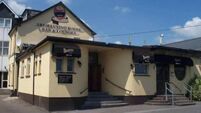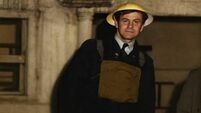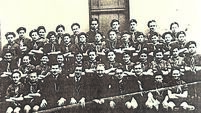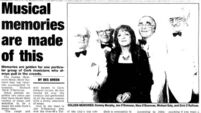Fury at exorbitant tram costs, and Harold Lloyd film wows Cork audiences
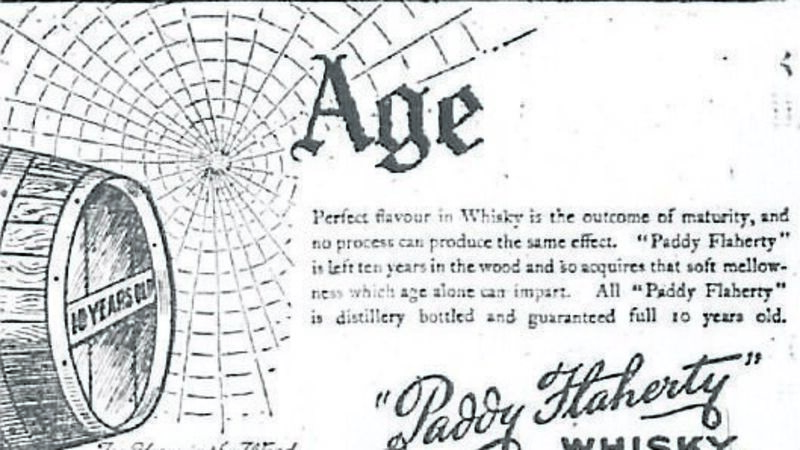
THE minimum fare for the Cork tram system is twopence, while that price in Liverpool carries you 6½ miles, the Echo reported 100 years ago today, on Saturday, October 6, 1923.
Nor do you need to spend as much time waiting at a street corner there as you do in Cork, it added.
In Dublin and Liverpool, you get trams properly seated, smooth-running and regularly inspected by Public Health officials. Of course, in those places there is a public opinion which insists on being heard.
We’re the same when it comes to the theatre. Last week I witnessed a client there under the influence of a certain stimulant. Did the tedious distraction he created for other theatregoers bring a reaction from management? Indeed not.
In Cork, for now at any rate, it appears the public will suffer on through exorbitant locomotion costs and theatrical disturbance.
Showing all week to crowded houses at the Pavilion in Patrick Street is Doctor’s Orders starring Harold Lloyd. It draws to a close with today’s three performances.
The programme also includes Larry Semon in The Counter Jumper, and the matinee today should prove a real treat for children.
Next week sees Norma Talmadge in The Voice From The Minaret. Starring with Miss Talmadge is Eugene O’Brien. These two have won the appellation of “the perfect screen lovers”.
The general situation regarding labour disputes in Cork showed no new developments today. But efforts at resolution continue and give some grounds for hope.
Today’s shipping included the arrival at Albert Quay of the SS Allie with coal for the Cork Gas Consumers Company and the departure of the SS Girasol with general cargo from Ford’s for Manchester. The SS Cromwell, SS Bangor and SS Lowland Firth brought coal and cleared light from Cork and Cobh respectively.
Dear Sir, Amateur wireless reception of music, speech, and morse furnishes scope for infinite pleasure to all sections of the community. Especially to the agricultural section, isolated as they are by the nature of their occupation from the concerts and amusements enjoyed by more fortunate townspeople.
Permission to erect ‘listening-in’ stations is long overdue. We have been too long deprived and the removal of present prohibitions need to be expediated.
A federation of Radio Clubs would wield considerable influence and prove effective in this matter. A start ought to be made in the large towns and cities to form clubs sharing a common constitution to safeguard the rights of the amateur.
Local clubs should prepare for the coming boom by enlisting all possible members and advising them on the purchase of apparatus either as compete sets or in parts to be assembled at home.
Furthermore, clubs could be run as social clubs for members to demonstrate, discuss and debate all things wireless.
Now is the time to act. Let Cork, who usually offers a headline to the country, maintain its reputation and lead. It only requires a few enthusiasts to form the nucleus of a club and bring public attention to its existence. - JEPHM
A large meeting was held on O’Brien Street in Mallow to urge the immediate release of all political prisoners, not only those in the Free State, but also in the Six Counties and in Great Britain.
W.C. O’Keeffe (Urban District Council) presided and stated that persistence and determination in forcing this issue would have a great effect in furthering the National cause.
Mr O’Keeffe urged all present to join the branch of Sinn Féin that was to be started in Mallow.
East Cork branches of the Irish Farmers Union met in the Town Hall, Midleton.
Mr P. Walsh (Mogeely) was moved to the Chair. He said the important question at the moment for East Cork farmers was the barley question. So far, no move has been made by the brewers or distillers to open a price for it.
Mr Walsh said they must take action at once. After a long discussion, the following resolution was proposed by Mr Brasier (Shanagarry) and seconded by Mr Donovan (Midleton): “We the farmers and barley growers of East Cork, being unable to compete with the price of foreign barley, earnestly request our representatives in the Dáil to urge the Government to impose a tariff on foreign barley, otherwise the land will go out of cultivation, as tillage is not paying under existing conditions”.
